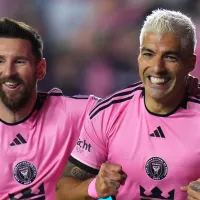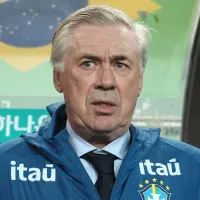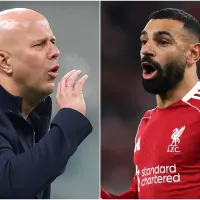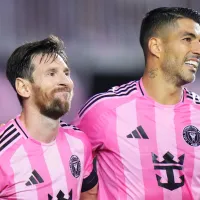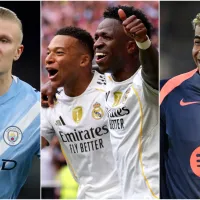There have been 60 games, 258 shots on target, 408 shots off target, 103 goals, 84 saves, 112 yellows and eight reds. Those numbers, statistically at least, paints a picture of the qualification process for Asia’s premier international football tournament the AFC Asian Cup.
For trivia fans the first Asian Cup was played in 1956 in Hong Kong and was won by South Korea with Israel as runners-up whilst the tournament itself (like the Africa Cup of Nations and the Copa América) is older than the European Championships. Japan is the most successful team in the history of the competition winning the title four times and are the defending champions. Saudi Arabia and Iran are the next most successful sides winning the trophy three times each followed by South Korea who have only won the cup twice.
The 16th edition of the tournament kicks off in Australia on the 9th of January and sees Asia’s leading lights looking for various degrees of redemption after a disappointing showing in the World Cup in Brazil. Iran and Australia can point to battling displays in the World Cup but Japan and especially South Korea were extremely disappointing.
Dutchman Pim Verbeek, who coached Australia in the 2010 World Cup, believes that this Asian Cup is as open as any feeling that a number of teams have realistic hopes of winning the tournament.
Programming note: For viewers in the United States, the tournament is being shown exclusively on One World Sports and DishWorld. Even if you don’t have a TV subscription to One World Sports, you can access the channel via online streaming service DishWorld for $10/month. Sign up for DishWorld via their website.
Japan:
Defending champions the Blue Samurai are being tipped to retain their trophy. Indeed they’ve come a long way and now have a number of their best players based in Europe. 10 of their squad of 23 ply their trade in a European league.
The attacking trio of Keisuke Honda, Shinji Okazaki and Shinji Kagawa will be difficult to contain if on song. Honda and Okazaki are enjoying relatively productive seasons for their club with the former scoring six goals in Serie A, whilst the latter has netted eight times in the Bundesliga. Shinji Kagawa’s form is quite worrying though as he’s only scored twice in all competitions since his much heralded return to Borussia Dortmund.
Defensively, there was a blow as full back Atsuto Uchida was ruled out as a result of injury.
Their lead-up to the tournament, on the pitch at least, has been encouraging. A 4-0 tonking against a Neymar inspired Brazil in Singapore aside, Japan have won their post-World Cup friendlies beating Venezuela , Jamaica, Honduras and most importantly Australia.
Off the pitch things have been more turbulent for the Blue Samurai as their newly appointed coach, Javier Aguirre, was named as one of the defendants by Spanish prosecutors who were probing match-fixing allegations relating to a 2010/2011 La Liga match between Real Zaragoza (whom he was coaching at the time) and Levante. The Japanese Football Association have stood by their new coach, but needless to say this has not helped Japan’s preparations.
If Japan get going it’s hard to see who can stop them but they are by no means odds on to win a fifth title.
Australia:
At the club level Australia is home to the AFC Champions League winners the Western Sydney Wanderers. With that trophy safely residing in Oz Socceroos coach Ange Postecoglu is plotting to ensure add to more soccer silverware in Australia by winning the AFC Asian Cup.
Postecoglu has injected an air of optimism into Australian football after the taking over from the unpopular Holger Osieck. Mixing youth and experience the Socceroos will rely on Tim Cahill, Mile Jedinak and Mark Bresciano to marshal the side whilst young goalkeeper Mat Ryan was identified by Verbeek as a key player too.
The concern is whether the older members of the squad will be able to handle the demands of the tournament especially in the group stages. This is where some of the younger members of the squad like Robbie Kruse will need to step up to give the elder statesmen the support they need.
Australia’s form hasn’t been much to shout about going into the Asian Cup winning only once since the World Cup beating fellow AFC side Saudi Arabia 3-2. They have drawn against the UAE and lost to both Qatar and Japan.
The 2011 finalists have a hard task ahead of them and they must make home advantage count if they’re to be in with a shout of winning.
South Korea:
Of all the Asian nations that took part in the World Cup the South Koreans were probably the most disappointing. Hong Myung-bo paid with his job and was replaced by German Uli Stielike.
Stielike started the job well enough steering his side to a 2-0 victory over Paraguay in his first game in charge. Since then he has notched up a victory against Jordan, whilst losing to both Costa Rica and fellow title rivals Iran.
Despite being one of Asia’s traditional powerhouses South Korea’s record in the Asian Cup leaves a fair bit to be desired. After winning the first two tournaments in 1956 and 1960, South Korea have not lifted the trophy since. It is an extraordinary drought all things considered and something the Taeguk Warriors will want to put right.
Swansea’s Ki Sung-yueng and Bayer Leverkusen’s Son Heung-min will be the main players for Stielike’s side whilst Lee Chung-yong, who has been impressed at Bolton under Neil Lennon, is more than capable of being a match winner. However, this side is light on strikers with the likes of Lee Dong-gook, Park Chu-young and Kim-Shin-wook overlooked by Stielike either due to injury or poor form.
If anything the pressure is off South Korea as they’ve only just entered the Stielike era. Song Chong-gug, who played in Guus Hiddink’s 2002 South Korean side, believes that this may be a tournament too soon for the current generation and the best that Stielike’s team can achieve is third place.
With the level of expectation not as high as it could be the shackles will be off for South Korean. Although it’s difficult to see them winning the Asian Cup, if they string a run together and things fall in their favour they may be a decent outside bet for the trophy.
Iran:
Iran, nicknamed Team Melli, arguably performed the best out of the Asian teams in the World Cup and come into the AFC Asian Cup as one of the more fancied sides. They have a number of talented players but their key man is former Manchester United assistant manager Carlos Queiroz.
The Portuguese coach turned Iran into a solid, disciplined unit and there were fears that he was going to leave the three-time Asian Cup winners after the World Cup. He has agreed to stay on and that can only be a good thing for Team Melli.
The experience of Javad Nekounam and Andranik Teymourian in midfield will be vital for the Iranians. Going forward they have Ashkan Dejagah and Reza Ghoochannejhad but the exciting pair of Sardar Azmoun (who was reportedly a target for Arsenal) and Alireza Jahanbakhsh are worth keeping an eye on.
The build-up to the tournament has not been as smooth as the Iranians would have liked. On the pitch they secured a creditable 1-0 over South Korea whilst beating Portuguese sides Estoril and Benfica. They were due to face Palestine but that friendly was abruptly cancelled whilst off the pitch assistant coach Ali Karimi resigned from his post hours before the Iranian team flew for Australia. Karimi reportedly posted a message on his Instagram account that read “If you can’t serve, quit to not betray”.
Despite Karimi’s absence Team Melli does have a semblance of continuity with Queiroz still at the helm. The side should be well versed to his system and style of play and if they avoid any further drama then it’s not beyond them to lift the Asian Cup.
China:
The perennial sleeping giants of Asian football China has always flattered to deceive on the international stage. For a nation the size of China which has a legion of football mad fans the level of underachievement even on an Asian scale is monumental.
Coached by former Lyon and Portsmouth man, Alain Perrin, the Chinese go into the Asian Cup with no great expectations though that doesn’t mean there isn’t pressure on the coaching staff and players.
The main aim is to get out of the group stages but predicting how well China will do is never a task for the faint hearted. They are equally capable of gliding through without a concern and crashing out in spectacular fashion.
If China hopes to go through to the knockout stages then a lot will rest on the shoulders of defender Zhang Linpeng. He was described as ‘our Sergio Ramos’ by Marcello Lippi, Guangzhou Evergrande’s Director of Football. Defensively solid, strong and tactically sound Zhang will play a huge role in organizing the Chinese backline. Ahead of him in midfield is club mate Zheng Zhi. The former Celtic and Charlton Athletic player’s experience will be crucial too if China are to challenge the tournament’s big guns.
What will work in China’s favor is the amount of time they’ve had to prepare for the AFC Asian Cup. All the players are based in China and the domestic season wrapped up in November. This has given Alain Perrin plenty of time to work with his squad and ensure that they’re well rested and fit for the start of the tournament. Coming into the tournament they’ve drawn with Palestine and beat Kyrgyzstan twice.
A lot will need to fall China’s way if they’re to make a good impression but this is a side Verbeek believes who could surprise a number of people.
The best of rest:
This will be the first time that Palestine will take part in the AFC Asian Cup. The Palestinians qualified after beating the Philippines in the AFC Challenge Cup.
The likes of Ray Wilkins and Paul le Guen will be leading teams into the tournament with the Englishman taking charge of Jordan, whilst the former Lyon boss is at the helm of Oman.
Uzbekistan have always threatened to but never have quite established themselves as Asian footballing giants. They may not have the quality to win the tournament but they will be a side that most teams will want to avoid.
On top of the talent mentioned it’ll also be worth keeping track of the UAE’s Omar Abdulrahman who had a trial at Manchester City. A gifted playmaker he’s currently playing his football at Al Ain, but has been tipped to move to Europe at some stage in his career.
The Asian Cup will be an interesting showcase for Asia’s elite. An exciting tournament is due and in Australia we could get a real spectacle.

